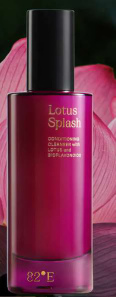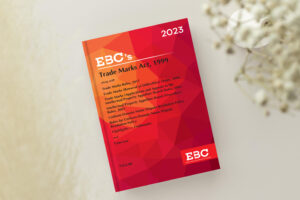Delhi High Court: C. Hari Shankar, J.*, noted that in each of the packs of defendants’ product, the mark ‘82°E’ figured at the lower edge of the bottle, which indicated that the trade mark of defendants was ‘82°E’ and not ‘Lotus Splash’. The Court opined that there was no prima facie case of passing off as the only common feature between plaintiffs and defendants’ mark was the word ‘lotus’. The products were completely dissimilar in appearance with a wide difference in the prices of the products and a consumer who used such products would be aware of the difference between ‘Lotus Splash’ and plaintiff’s lotus family of products. It could not be said, therefore, that defendants by using the name ‘Lotus Splash’, were seeking to pass off its product as plaintiff’s product. Thus, no prima facie case for grant of injunction was made out.
Background
Plaintiff claimed to have, in its repertoire, over 1000 skin, beauty and hair care products, all of which were sold under the house mark/trade mark ‘LOTUS’ and copyright, in the logo ![]() also stands registered in plaintiff’s favour with effect from 10-02-2011. Plaintiff was aggrieved by the use, by defendants, of the name/logo ‘Lotus Splash’ for the face cleanser/face wash manufactured and sold by it.
also stands registered in plaintiff’s favour with effect from 10-02-2011. Plaintiff was aggrieved by the use, by defendants, of the name/logo ‘Lotus Splash’ for the face cleanser/face wash manufactured and sold by it.
Plaintiff submitted that the use of the name ‘Lotus Splash’ for its product amounted to infringement of plaintiff’s registered ‘LOTUS’ formative marks and misrepresented the product of defendants as having an association with plaintiff. Plaintiff issued a notice to defendants on 06-02-2023, calling on defendants to cease and desist from using the mark ‘Lotus Splash’ for its product and as the notice did not deter the defendants from continuing to use the mark, plaintiff instituted the present suit against defendants, seeking a decree of permanent injunction, restraining them from using ‘Lotus’ as part of the mark under which they sold their product.
Comparative depiction of plaintiff’s and defendants’ products was as follows:
|
Plaintiff’s Cleanser Product |
Defendants’ Cleanser Product |
Analysis, Law, and Decision
Aspect of infringement vis-à-vis Section 29 of the Trade Marks Act, 1999
The Court observed that Sections 29(1), 29(7), 29(8) and 29(9) of the Trade Marks Act, 1999 (‘the Act’) dealt with a case in which the allegedly infringed mark was identical to the registered trade mark which was infringed and thus opined that they did not apply to present case, as the allegedly infringing mark was not ‘Lotus’ but ‘Lotus Splash’, whereas plaintiff did not held any registration for the mark ‘Lotus Splash’. The Court further opined that neither Section 29(2)(c) nor Section 29(3) of the Act would be applicable in the present case as Section 29(3) of the Act was applicable in a situation in which the case falls within Section 29(2)(c) of the Act, which again was applicable where both the marks were identical.
The Court observed that Section 29(4) of the Act applied where goods in respect of which the rival marks were employed were not similar to each other and thus opined that inasmuch as plaintiff submitted that defendants were using the impugned ‘Lotus Splash’ marks for goods which were similar to those in respect of which plaintiff used the ‘Lotus’ formative marks, Section 29(4) of the Act was not applicable.
The Court noted that the mark ‘Lotus Splash’ was used by defendants for face cleanser/face wash and opined that there could be no manner of doubt that the goods in respect of which defendants were using the impugned mark ‘Lotus Splash’ were allied and, to an extent, even identical to the goods in respect of which plaintiff uses its registered ‘Lotus’ formative marks.
The Court relied on Amritdhara Pharmacy v. Satya Deo Gupta, 1962 SCC OnLine SC 13 and opined that it was clear that ‘Lotus’ formed dominant part of the ‘Lotus Splash’ mark which immediately impressed itself on the psyche of a consumer of average intelligence and imperfect recollection, from whose perspective the aspect of infringement must be examined. The Court also opined that from the perspective of a consumer, who first comes across plaintiff’s ‘Lotus’ formative marks, used on cosmetics and other skin treatments, and who later comes across defendants’ ‘Lotus Splash’ product, there was obviously the possibility of the consumer associating defendants’ product with that of plaintiff.
The Court opined that the entire mark ‘Lotus’ was part of defendants’ ‘Lotus Splash’ mark and, as both marks were used for cosmetic preparations such as face wash, there was prima facie likelihood of confusion because of the use, by defendants, of the impugned ‘Lotus Splash’ mark.
The ingredients of similarity of marks, similarity/identity of the goods in respect of which the rival marks were used and likelihood of confusion or association in the minds of public because of the existence of these factors were prima facie satisfied in the present case. Thus, inasmuch as plaintiff’s marks were registered, a prima facie case for infringement existed, within the meaning of Section 29 of the Act.
Aspect of infringement vis-à-vis Section 30(2)(a) of the Act
The Court stated that Section 30(2) of the Act was an exception to Section 29 of the Act as Section 30(2), in its various clauses (a) to (e) sets out circumstances in which a registered trade was not infringed and if any one of the said circumstances apply, there was no infringement and thus then there was no reason to seek recourse to Section 29 at all as Section 30(2) would clearly override Section 29.
The Court noted that defendants had not applied for registration of the mark ‘Lotus Splash’ as a trade mark under the Act and thus opined that there could be no question of any estoppel against defendants invoking Section 30(2)(a) of the Act in their defence. The Court observed that Section 30(2)(a) of the Act clearly stated that use of a registered trade mark in such a manner as to indicate the kind, quality, quantity, intended purpose, value, geographical origin, time of production of goods or of rendering of services or other characteristics of the goods or services was not infringement.
The Court opined that plaintiff’s contention that the mark ‘Lotus Splash’ did not qualify for the benefit of Section 30(2)(a) as it was not descriptive but only suggestive of defendants’ product, prima facie, failed to impress as ‘Lotus’ formed a dominant part of the mark ‘Lotus Splash’ as to render the mark prima facie indicative of lotus flower extract as a key ingredient of the product, and, therefore, so as to entitle defendants to the benefit of Section 30(2)(a) of the Act. The Court thus opined that it could not be held that the mark ‘Lotus Splash’ was merely suggestive in nature as when viewed from the perspective of consumer of average intelligence and imperfect recollection, the words ‘Lotus Splash’ immediately conveyed to the average consumer the impression that the product contained ‘Lotus’ as a key ingredient because the gaze of a consumer would fall equally on ‘Lotus Splash’ as also on the descriptive explanation below ‘Lotus Splash’ reading “conditioning cleanser with lotus and bioflavonoids”.
The Court thus agreed with defendants’ contention that they would be entitled to the protection of Section 30(2)(a) of the Act and that their use of the mark Lotus Splash could not be regarded as infringing in nature. The Court opined that Lotus Splash was a face wash, so that the word ‘Splash’, when used with ‘Lotus’, immediately informed the consumer that the product contained lotus extract and was to be splashed on the face and the entire mark ‘Lotus Splash’ was, therefore, inherently indicative not only of the primary constituent of the product, which was lotus flower extract, but also, of the characteristic of the product as a face wash.
The Court noted that in each of the packs of defendants’ product, the mark ‘82°E’ figures at the lower edge of the bottle, which indicated that the trade mark of defendants was ’82°E’ and not ‘Lotus Splash’. Inasmuch as the mark ‘Lotus Splash’ was, therefore, indicative of the characteristics of the goods in respect of which it was used, the use of the mark could not be regarded as infringing in nature and if there was no infringement, there could be no injunction.
The Court opined that there was no prima facie case of passing off, especially as the only common feature between plaintiffs and defendants’ mark was the word ‘lotus’. The products were completely dissimilar in appearance with a wide difference in the prices of the products and a consumer who used such products would be aware of the difference between ‘Lotus Splash’ and plaintiff’s lotus family of products. It could not be said, therefore, that defendants, by using the name ‘Lotus Splash’, were seeking to pass off its product as the product of plaintiff. Thus, no prima facie case for grant of injunction was made out.
[Lotus Herbals (P) Ltd. v. DPKA Universal Consumer Ventures (P) Ltd., 2024 SCC OnLine Del 498, decided on 25-01-2024]
*Judgment authored by: Justice C. Hari Shankar
Advocates who appeared in this case:
For the Plaintiff: Akhil Sibal, Senior Advocate; Abhishek Bansal, Asavari Jain, Mohan Vidhani, O.P, Bansal, D.K. Gupta, Bahuli, Rahul Vidhani, Prakhar Singh, Elisha Sinha, Mikshita Gautam, Advocates
For the Defendants: Dayan Krishnan, Senior Advocate; Pravin Anand, Dhruv Anand, Udita Patro, Nimrat Singh, Azeem Khan, Arundhati Dhar, Shreya Puri, Deepa Rathi, Advocates






